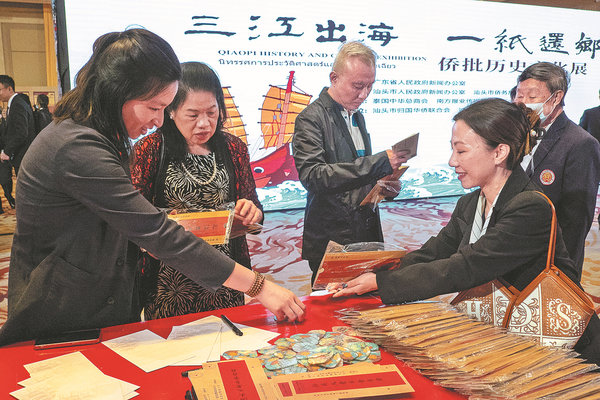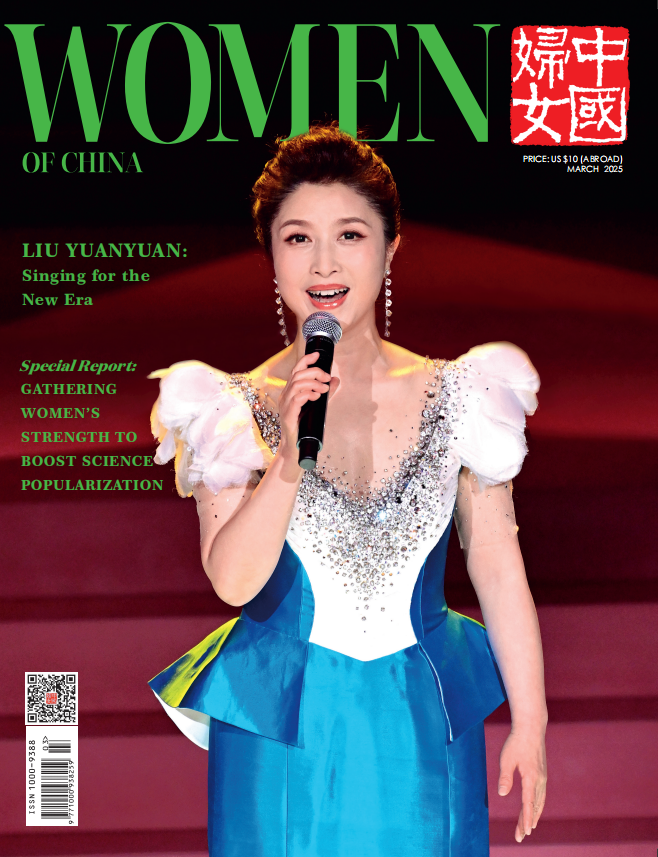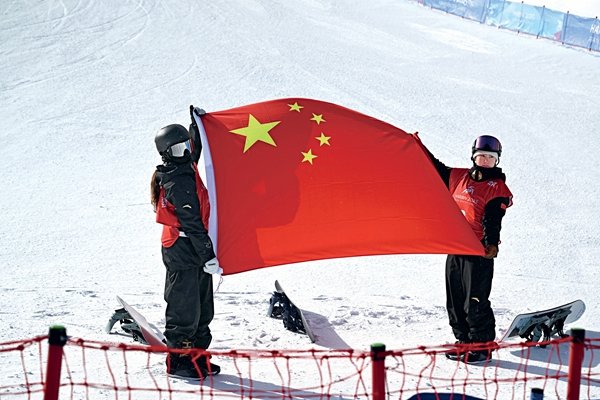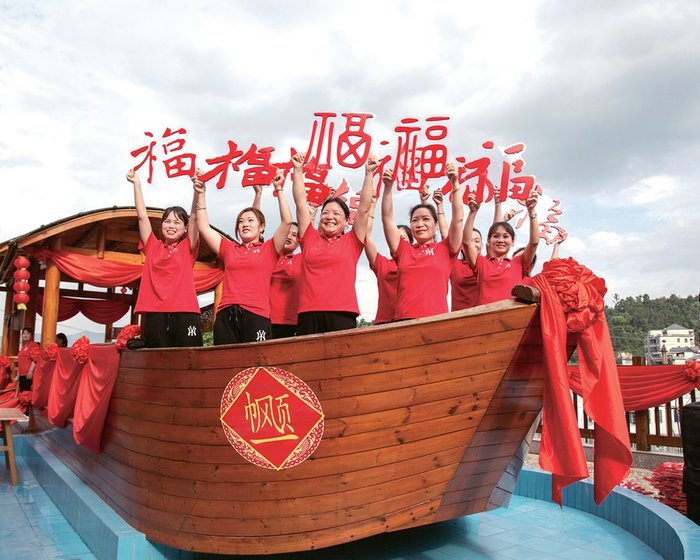Qiaopi — Letters Enveloped in Love Tell Emigrants' Stories
 |
| People visit an exhibition showcasing the history and culture of qiaopi, a form of mail mixing correspondence and remittance documents from overseas Chinese, in Bangkok, Thailand, on July 9.Thailand is one of the Southeast Asian countries with the largest population of overseas Chinese from Guangdong and Fujian provinces in southern China. [Lin Hao/Xinhua] |
A line from a well-known poem by Du Fu, one of China's greatest poets from the Tang Dynasty (618-907), that reads: "A letter from family is worth ten thousand in silver", reflects the deep feelings that Chinese people have for their country and their families.
The sentiments are ingrained in the culture and history of the overseas Chinese, as demonstrated by the distinctive form of correspondence known as qiaopi, which had great significance when electronic forms of communication were not available.
Qiaopi, comprising a letter and a remittance certificate, served as a bond between Chinese emigrants and their families back home. In the 19th and 20th centuries, many of those emigrants, particularly from Guangdong and Fujian provinces, sent money home to support their families and to let their near and dear ones know that they were safe. The letters usually expressed their longing to be reunited.
These letters, which are poignant reminders of their unbroken bonds with their hometowns, are now considered national cultural treasures. They bear testimony to the history of emigration and entrepreneurship of overseas Chinese.
In 2020, President Xi Jinping visited a museum dedicated to qiaopi in Shantou, Guangdong. He said that qiaopi recorded the tenacity of the older generations of overseas Chinese and their profound love for their hometowns and the motherland.
Xi, who is also general secretary of the Communist Party of China Central Committee and chairman of the Central Military Commission, emphasized the importance of preserving these priceless documents and strengthening their study.
A southern coastal city, Shantou is where many overseas Chinese set sail from more than a hundred years ago to seek better lives abroad, mainly in Southeast Asia. The diaspora was a reflection of the difficult conditions at that time in Shantou, which had a high population density and little arable land due to a dense network of waterways that caused frequent flooding.
Han Pengfei, who works at the Shantou Archives, said, "Despite the difficulties they encountered, these people, who worked as cooks, barbers, tailors and small traders, always sent money home when writing to their families."
The letters used expressions that were common in local dialects, addressed family matters and emphasized filial piety, Han said. The letter writers also expressed their concerns during perilous times and their joy as the country grew stronger.
"Almost all families (in Shantou) of the old generation ... have such letters in their homes, which not only bear witness to history, but also evoke a sense of nostalgia among the overseas Chinese," he added.
Efforts have been made to collect and preserve qiaopi, which have been included in UNESCO's Memory of the World Register for 10 years.
The Shantou Archives has collected over 86,000 original letters and a lot of memorabilia from people who emigrated, including suitcases and passports, Han said.
Efforts have been made to compile selected letters into collections and exhibit them overseas. For example, a two-day exhibition was held in July in Thailand to showcase the history and culture of qiaopi.
Lin Chuqin, chairman of the Thai-Chinese Chamber of Commerce, was pleasantly surprised to see letters written by his father at the exhibition. He was gifted two copies of his father's letters at the event.
Lin's father traveled to Thailand in search of a better life, and the letters profess his love for his relatives back home in China. They also demonstrate the solidarity and mutual assistance among the overseas Chinese.
"When I was young, my father would let me accompany him when he went to mail the letters. No matter how difficult the situation was, he would always send some money home," Lin said. "I am very happy to see China's rapid development."
Han said that more qiaopi exhibitions will be held overseas in the future, as they act as a bridge for the overseas Chinese and awaken their feelings for the motherland.
The overseas Chinese community in Thailand has recently donated over 200 qiaopi items to the Shantou Archives, further enriching the collection.
(Source: China Daily)
Please understand that womenofchina.cn,a non-profit, information-communication website, cannot reach every writer before using articles and images. For copyright issues, please contact us by emailing: website@womenofchina.cn. The articles published and opinions expressed on this website represent the opinions of writers and are not necessarily shared by womenofchina.cn.








.jpg)

 WeChat
WeChat Weibo
Weibo 京公网安备 11010102004314号
京公网安备 11010102004314号